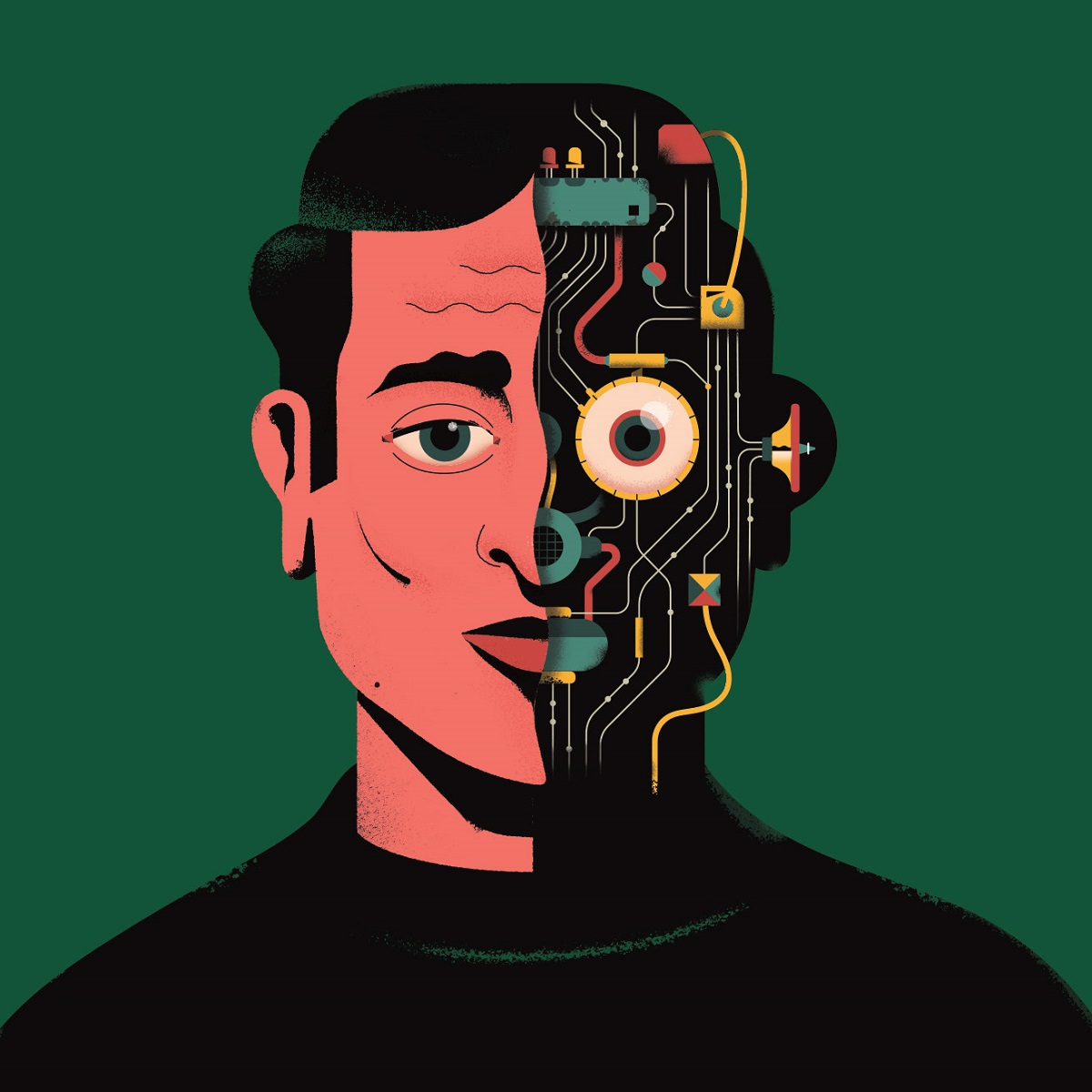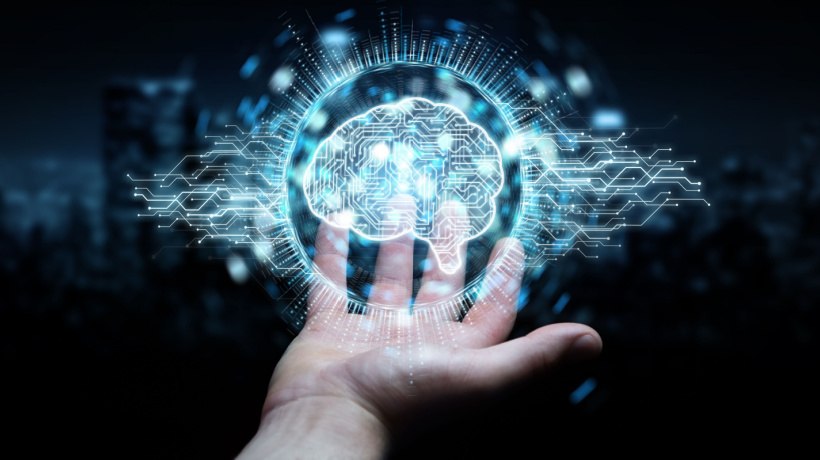Hello!
 It has been quite a while since DevOps exploded onto the scene, and for good reasons. DevOps liberated the traditionally siloed development team and IT operations team, giving them an environment to work together, from software design to the launch.
It has been quite a while since DevOps exploded onto the scene, and for good reasons. DevOps liberated the traditionally siloed development team and IT operations team, giving them an environment to work together, from software design to the launch.
So far, so good. But a multitude of challenges – like skill sparsity and multifarious toolset – make DevOps methodology inefficient. Achieving 100% automation with DevOps across the software development lifecycle (SDLC) remains elusive.
However, Artificial Intelligence (AI) can resolve these challenges. With Al transforming DevOps, businesses can easily reduce operational complexities and streamline the different phases of the SDLC.
How Can AI Software Be Used in DevOps?
Artificial intelligence can be the catalyst for a significant DevOps transformation. There is no denying that it is not humanly possible to work with massive amounts of data and perform computing operations daily. AI-driven DevOps can unfold better possibilities for teams to build, deploy, manage and deliver applications.
 DevOps is indivisibly connected with AI. The reason being that DevOps brings a business-focused approach to software delivery, and AI is the technology that is infused into the DevOps system for efficient functioning.
DevOps is indivisibly connected with AI. The reason being that DevOps brings a business-focused approach to software delivery, and AI is the technology that is infused into the DevOps system for efficient functioning.
With the added capabilities of AI technology, DevOps teams can code, monitor, test, and release software without any hiccups or delays. Another significant advantage is that the technology allows for efficient automation of processes as well as rapid failure detection and resolution, resulting in improved team cooperation.
10 Ways AI Software Is Transforming DevOps
Testing
Continuous testing is a key component of DevOps. As testing happens to verify every change in the development process, a wealth of data is generated for DevOps teams to analyze. This is where AI Software has a role to play in your DevOps pipeline.
AI can simplify the job of analyzing and categorizing your bulk data by identifying key patterns. It further dissects coding errors and inefficient practices, highlighting the scope of development in your process and making testing practices more efficient.
Data Access
 There is an overwhelmingly enormous amount of big data, with more data being generated daily. That said, DevOps teams struggle with the lack of free access to this big data. AI in DevOps will help release data trapped in organizational silos and allow for efficient aggregation.
There is an overwhelmingly enormous amount of big data, with more data being generated daily. That said, DevOps teams struggle with the lack of free access to this big data. AI in DevOps will help release data trapped in organizational silos and allow for efficient aggregation.
AI can not only extract data from a multitude of sources but also present it in a way that is valuable for analysis.
Real-Time Alerts
A purpose-driven alert system is an important tool for DevOps teams to spot issues and resolve them instantly. However, alerts may come pouring in when several issues appear in a specific timeframe, making it difficult for DevOps to first identify and tackle the high-priority ones.
AI and ML can guide teams to respond timely to each alert. AI puts priority labels on the alerts based on factors like the intensity and source of alert and past behavior. This simplification of alerts will help DevOps teams efficiently manage situations of data flood.
Anomaly Detection
 Security threats like Distribution Denial of Services (DDoS) attacks or breaches of secure systems can undermine your DevOps team’s efforts for successful software implementation. AI can drive DevSecOps and fortify security by recording security threats and running anomaly detection based on Machine Learning through a central logging framework.
Security threats like Distribution Denial of Services (DDoS) attacks or breaches of secure systems can undermine your DevOps team’s efforts for successful software implementation. AI can drive DevSecOps and fortify security by recording security threats and running anomaly detection based on Machine Learning through a central logging framework.
Instituting a combined AI and DevOps strategy will ensure protection against attacks from hackers and DDoS, facilitating your software systems’ secure and efficient functioning.
Collaboration
AI is transforming DevOps teams for higher levels of coordination, even across remote geographical locations. Although DevOps Automation Services promotes collaboration, the characteristic differences between Development and Operations teams impede them from reaching an optimum level of collaboration. Developers aim to release code quickly, whereas the operations team’s goal is to keep disruption to the existing systems to minimal.
Achieving a unified view into the systems and the problems across the DevOps pipeline can prevent conflict between the DevOps teams. This is what AI-powered systems aim to do. These systems facilitate a holistic understanding of anomalies and their immediate rectification.
Feedback
 Collating feedback at every step is the principal function of DevOps, and it can be performed using ML-driven monitoring tools. They can collect information such as datasheets, performance matrix, log files, and more. The feedback gathered is pivotal to detect potential issues. Besides, make practical suggestions as well as guide their application.
Collating feedback at every step is the principal function of DevOps, and it can be performed using ML-driven monitoring tools. They can collect information such as datasheets, performance matrix, log files, and more. The feedback gathered is pivotal to detect potential issues. Besides, make practical suggestions as well as guide their application.
Failure Forecasting
Failures can sneak up at any time in different segments or tools in DevOps, undermining the whole system’s efficiency. Putting machine learning models that root out potential errors based on data will keep you one step ahead.
By recognizing and analyzing patterns, AI can transform the DevOps system to see red-flag indicators and help predict the signs of failure, both novel and an occurred fault which produces definite readings each time. Such timely notifications allow the team to resolve issues before they cause significant delays in the software development life cycle (SDLC).
Prompt Rectification of Issues
Operational inefficiencies are often a result of issues and bugs in software. AI-driven DevOps are apt at identifying and redressing the problems immediately. When faced with multiple issues at a given time, AI also helps in prioritizing the urgent problems that directly impact performance. It further gathers critical diagnostic data for such issues and recommends instant solutions.
Resource Management
Artificial Intelligence extends the much-needed capability to identify and automate routine tasks, doing them better, faster, and cheaper than humans. We can anticipate AI and ML to evolve further and become adept at automating tasks of even higher scope and complexity, allowing humans to focus on creativity and innovation.
Root Cause Analysis
 AI identifies patterns in processes, i.e., cause and activity, and analyzes them to determine the root cause behind the process failure.
AI identifies patterns in processes, i.e., cause and activity, and analyzes them to determine the root cause behind the process failure.
Since engineers are focused on quickly restoring the system to function, they often skip dissecting failures in detail.
As a result, the root cause remains unidentified and unresolved, causing recurring issues. By adopting AI in your DevOps system, you can ensure that root causes are identified and resolved promptly.
Also read:
- 14 Critical Mistakes to Avoid When Planning Your Business Exit
- Why the Non-Farm Payroll is Important To Trade in Forex?
- Top Digital Marketing Trends Your Small Business Should Tap Into
Conclusion
AI is making machines smarter, transforming the way IT organizations function. Now, it is cascading its capabilities to DevOps, making the software development lifecycle (SDLC) more intelligent. With the integration of AI, DevOps teams are better coordinated and can eliminate the scope of human errors.
If you are looking to empower your DevOps development cycle with these AI software-driven autonomous systems, VLink Inc. is the way to go. AI and ML are rapidly transforming the DevOps landscape, and our team can help you adopt and gain great value by ensuring seamless integration of smart solutions to your existing systems. Contact our experts to help you build an agile development process.
Thank you!
Join us on social media!
See you!






